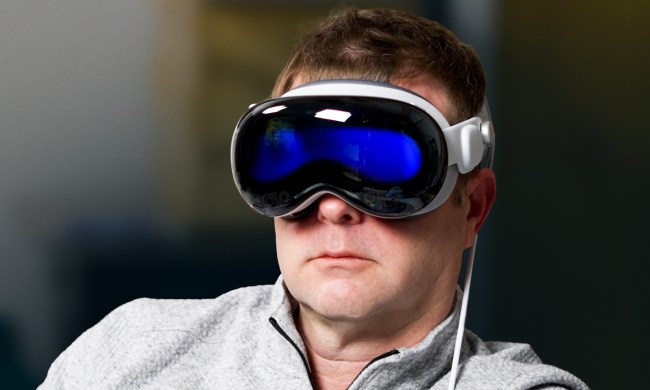The Apple Vision Pro is already incredibly easy to use, largely thanks to its lack of controllers. You just look at a control and tap your index finger to your thumb to select.
But hand gestures aren’t always easy or possible for the millions of people worldwide who have paralysis of the upper limbs. Synchron recently announced a spatial computing breakthrough that lets users of the Stentrode BCI (brain computer interface) implant control an Apple Vision Pro.
A demo of the technology was posted in a YouTube video, using the example of a person named Mark with amyotrophic lateral sclerosis (ALS), which prevents movement of his hands. But thanks to the BCI, he can now use a mixed-reality headset. Since the Vision Pro uses eye-tracking to move the cursor, Synchron’s BCI only needs to detect the intention to make small hand gestures.
Mark played Solitaire, browsed and watched videos on Apple TV, and sent text messages, selecting words with Synchron’s BCI and Vision Pro software.
This advancement follows an equally impressive demonstration of Mark using a text chat interface that speeds up interaction with the help of ChatGPT. Synchron posted a YouTube video that shows how it works.
Sychron was pioneering BCI work long before Neuralink. The Stentrode was the first BCI implanted in humans, and clinical trials began in 2022. Synchron uses well-established techniques like stents and endovascular surgery. While Neuralink is impressive, allowing the equivalent of mouse control via its BCI, it requires opening the skull.
BCI hardware tends to get the most attention, but software and integration with external devices is essential to creating a more comfortable and functional experience, as proven by this new example.
Availability of this technology is quite limited with clinical trials still in progress for both. That means it could be several years before thought control of computers becomes widespread. While the news of breakthroughs like this are exciting, more time and thorough testing over years is needed to ensure safety.




